EN

Novembro 2025
There is a whole circuit of cultural spaces, platforms, and initiatives that have been founded in the city by people of different nationalities—and to whom the word “foreigner” no longer applies. Between places of creation and leisure, and groups that graft their identity onto new roots, we spoke with some examples of those who add new tones to the northern accent.
Baque Flores do Porto
Maracatu is, by its very nature, a cultural transplant—originally created in the late 17th century by enslaved populations in the colony of Brazil, it is a ritual procession in which percussion instruments accompany characters representing the court of kings and queens of the past, symbols of the autonomy and authority lost through slavery. This is a musical manifestation that also draws on the syncretic religious figures of the orixás and candomblé.
Juliana Evangelista, a native of São Paulo, had already participated in maracatu groups, and when she moved to Porto in 2021 to pursue a master's degree, she began to research which maracatu groups existed: “I noticed that there was Baque do Tejo in Lisbon, but when I got here, I realized that the trip from Lisbon to Porto is not so easy.”
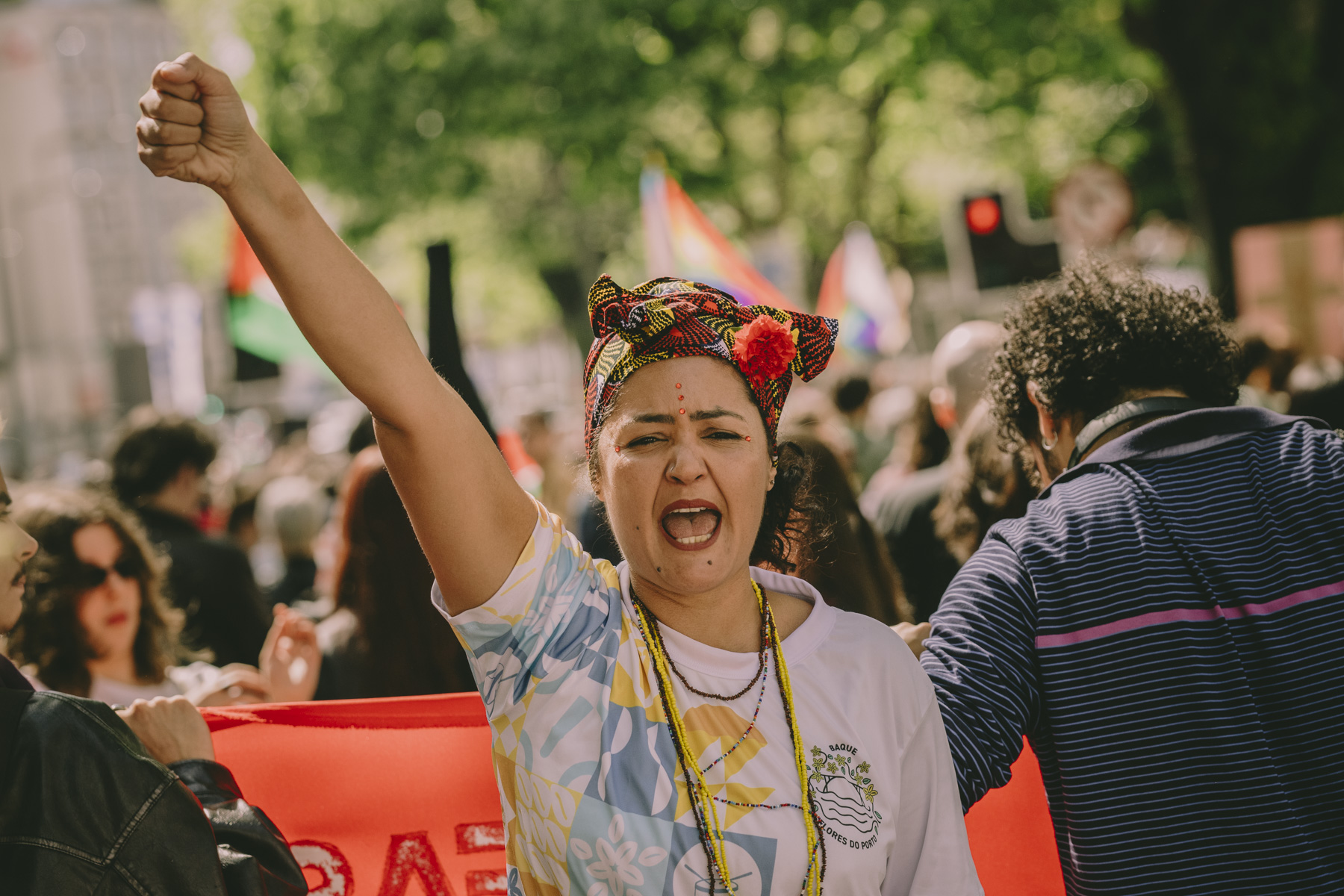
Juliana Evangelista © DR
So, she began searching a large online group—the “Cíclicas” group, made up of Brazilian women—to see if anyone else would be interested in founding a maracatu group in Porto. Through the group, she discovered another co-founder of Baque Flores do Porto, Paula Vale, who had already participated in a maracatu workshop with the conductor of Baque do Tejo. Shortly afterwards, the first incarnation of the group was formed — with about 10 members, sharing three percussion instruments between them, they began rehearsing in the gardens of the Palácio de Cristal.
The name they chose for themselves, as is customary for maracatu groups, takes its cue from the nature of the city where they perform — and they chose a symbol of Porto as their motto: the camellia. In addition, the orisha entity they chose as the group's patron is Oxum — the goddess of fresh waters, in reference to the Douro River.
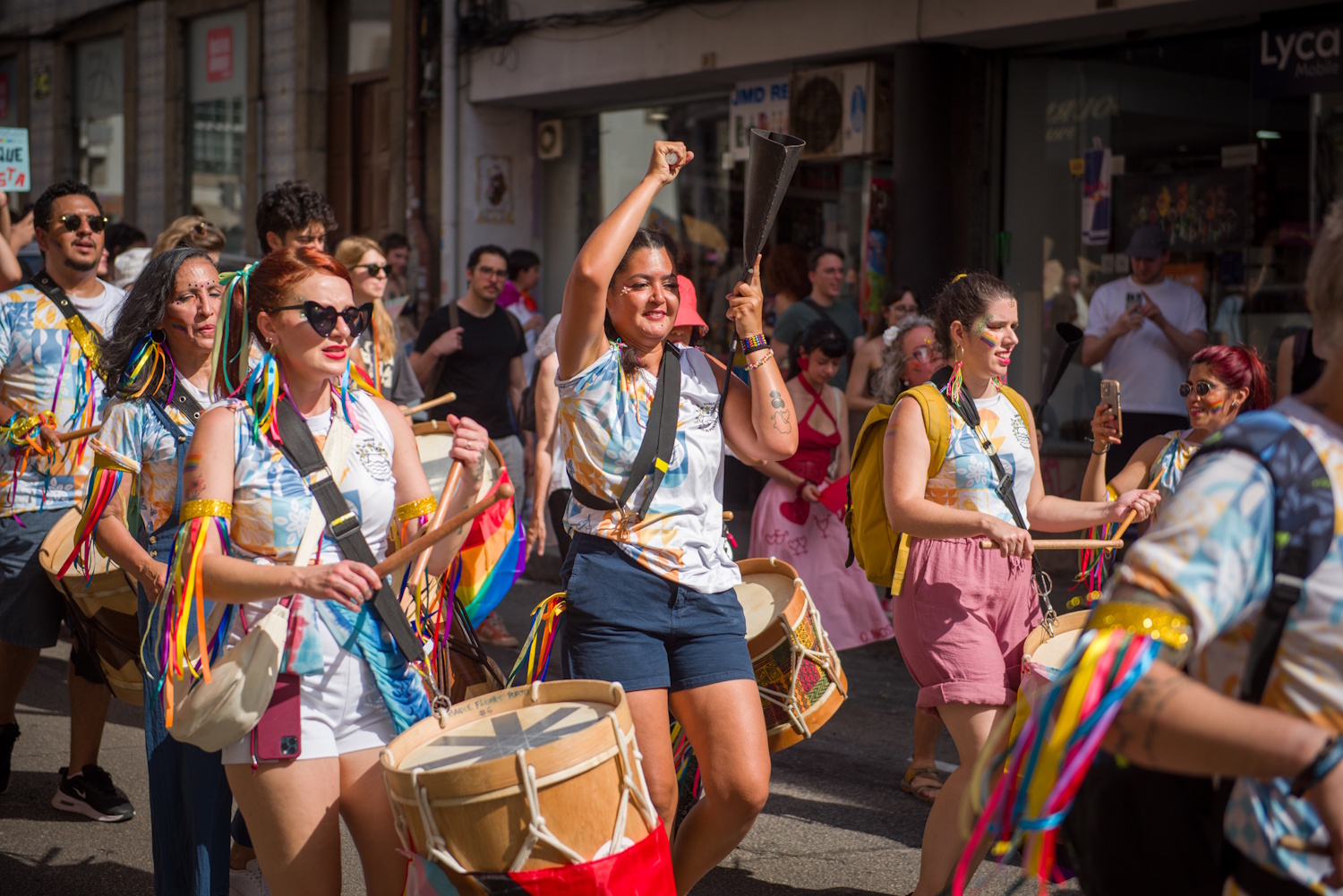
O Baque Flores do Porto conta já com 60 membros, distribuídos por 5 grupos de trabalho © DR
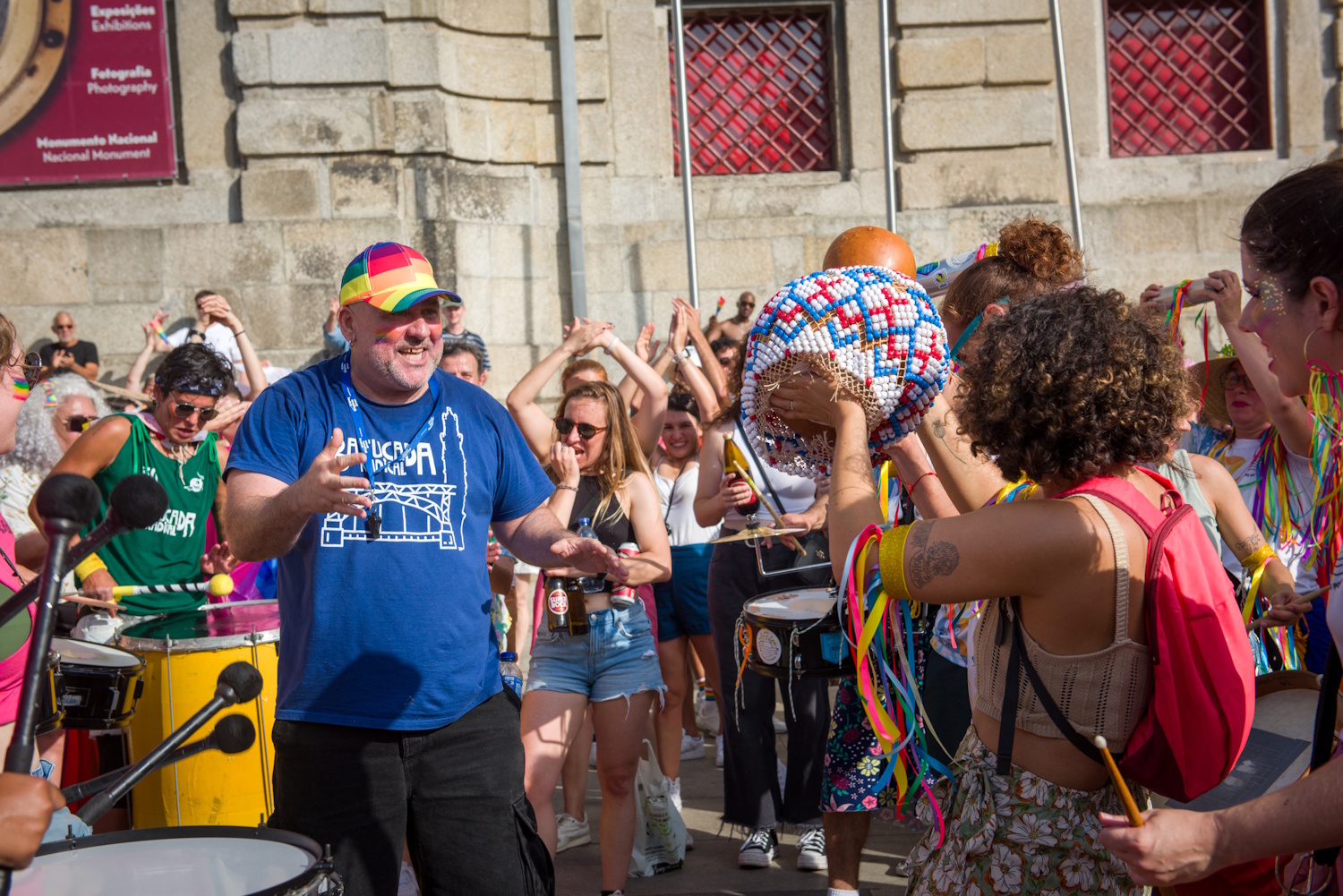
© DR
The group has grown steadily and now has around 60 active members, divided into five working groups with specific functions: Communication, Education, Cultural Production, Human Resources, and Administration/Finance. For example, the Cultural Production group is responsible for repairing instruments, while the Education group organizes small learning workshops. For some time now, due to their size and decibel levels, they have been unable to rehearse in public spaces — currently doing so at Batucada Radical, another Brazilian percussion collective in the city. This is, in fact, the group's biggest struggle: “We really want to find a space of our own, because that would allow us to organize our own activities, for all ages.”
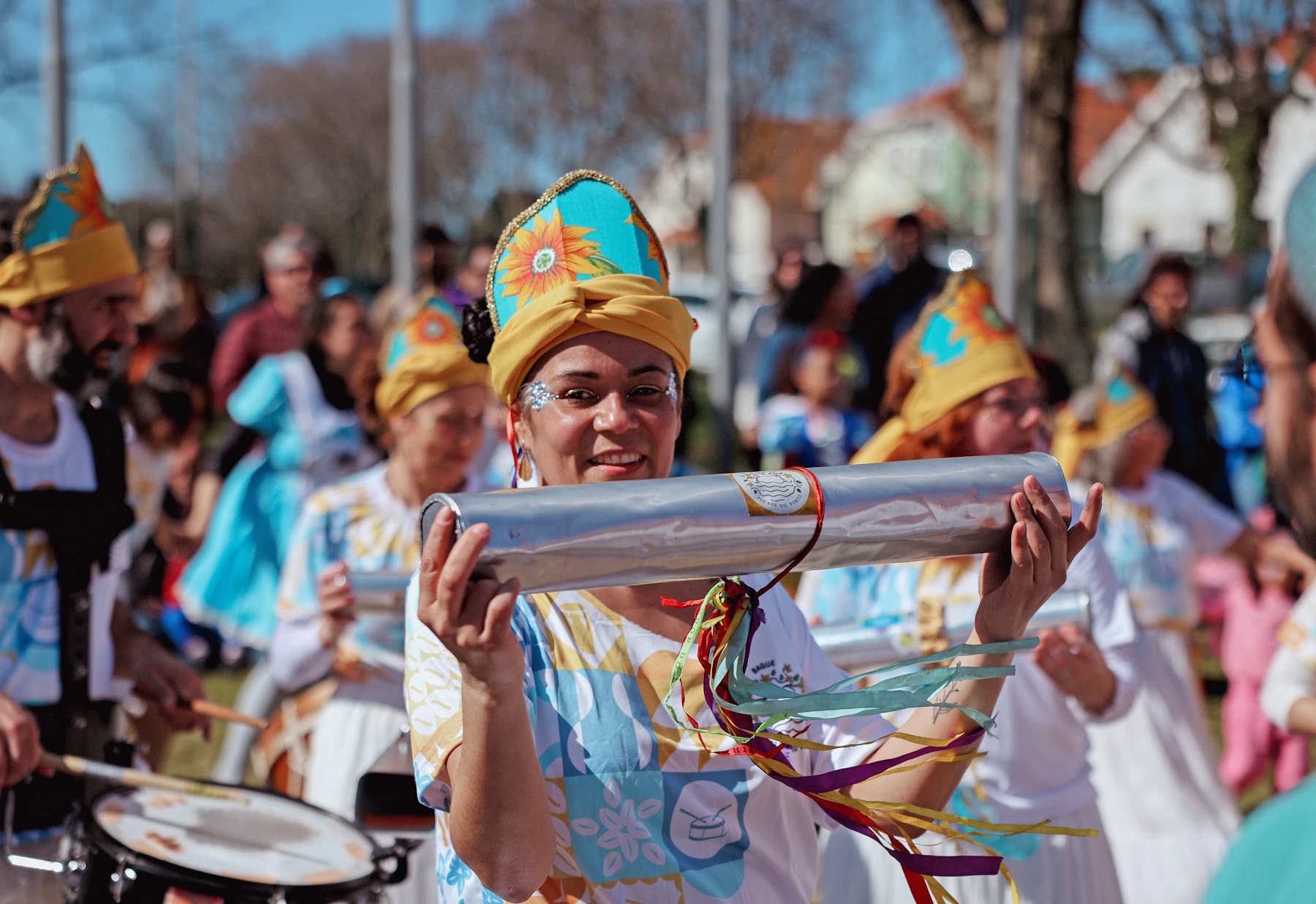
© DR
Throughout its history, Baque Flores do Porto has been present at important moments in the city's life, from the celebrations of April 25 to the Pride Parade. This is intrinsic to the nature of maracatu, as Juliana points out: “It is essential that we participate in these events, because maracatu is a cultural expression of resistance, created by people who were excluded and lived on the margins of society.” To this legacy is added an even more intimate layer: “For us, this takes on an even greater dimension because we are immigrants—and because we want to make ourselves known through beauty, through the beautiful things we have to show from our culture.”
Svet Space
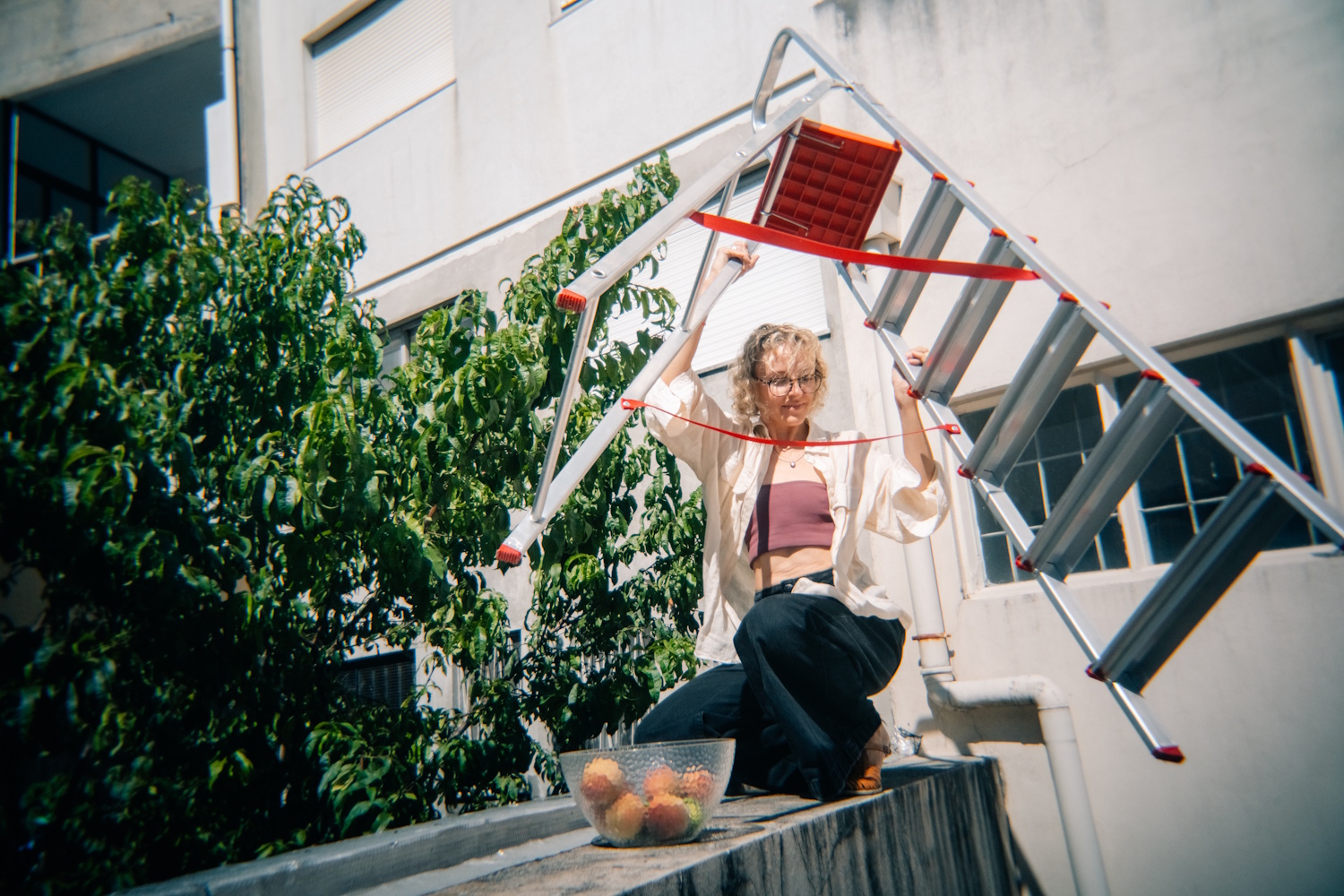
Svetlana Balabushkina © Maria Sher
The owner of Svet Space is Svetlana Balabushkina, but the name of the space is not her nickname. “Svet” means “light” in Russian. And it was a search for light—or an escape from the fog—that led Svetlana to leave Russia, just as the conflict with Ukraine broke out: “I finally decided that I didn't want to raise my children in that Russia.” Originally from Saint Petersburg, she says she found a similar spirit in Porto: “Like Saint Petersburg, the city of Porto is different from the rest of the country. People are more welcoming, they have a stronger personality.”
The Svet space originated from a small social group of the same name: “When I arrived here, I wanted to meet people, so I started organizing small gatherings, mainly within the Russian community.” The goal was to find friends for myself and my children, but the number of people attending Svet events began to precipitate the need for a space: “I'm not an artist, but I love being surrounded by artists. And I started looking for a space where I could host workshops and small events.”
The search was quick: Svetlana immediately fell in love with the second place she visited, in Praça do Exército Libertador, in the heart of Carvalhido: “Before it was a market, it was a rather dull textile shop.” In a very natural way, the doors are open to anyone who wants to sit down and work on their computer or with their craft tools: “We never started out thinking that it would have a special focus on ceramics, but a friend had a kiln that he wasn't using, and that attracted these artists.”
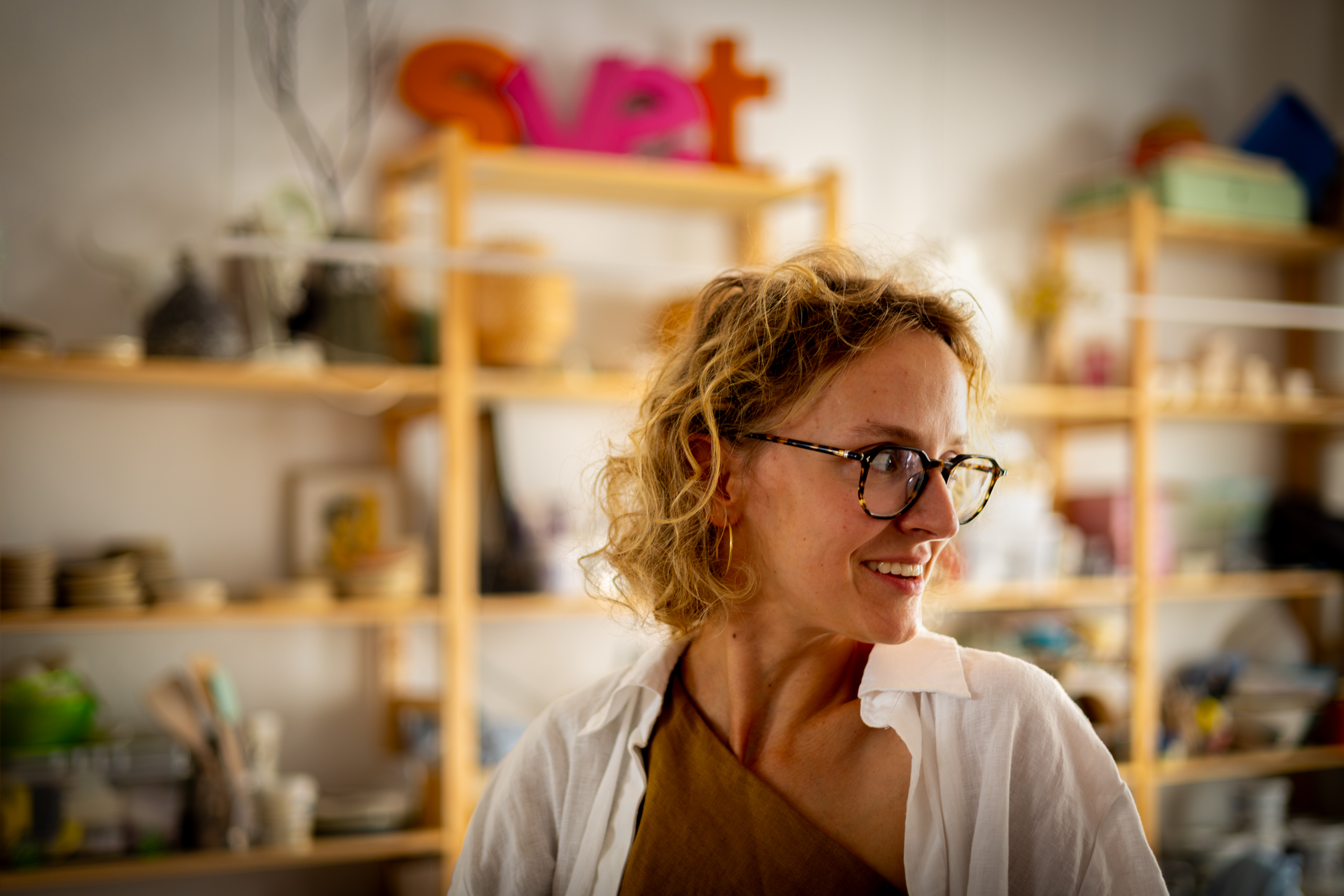
© Sofia Hugens
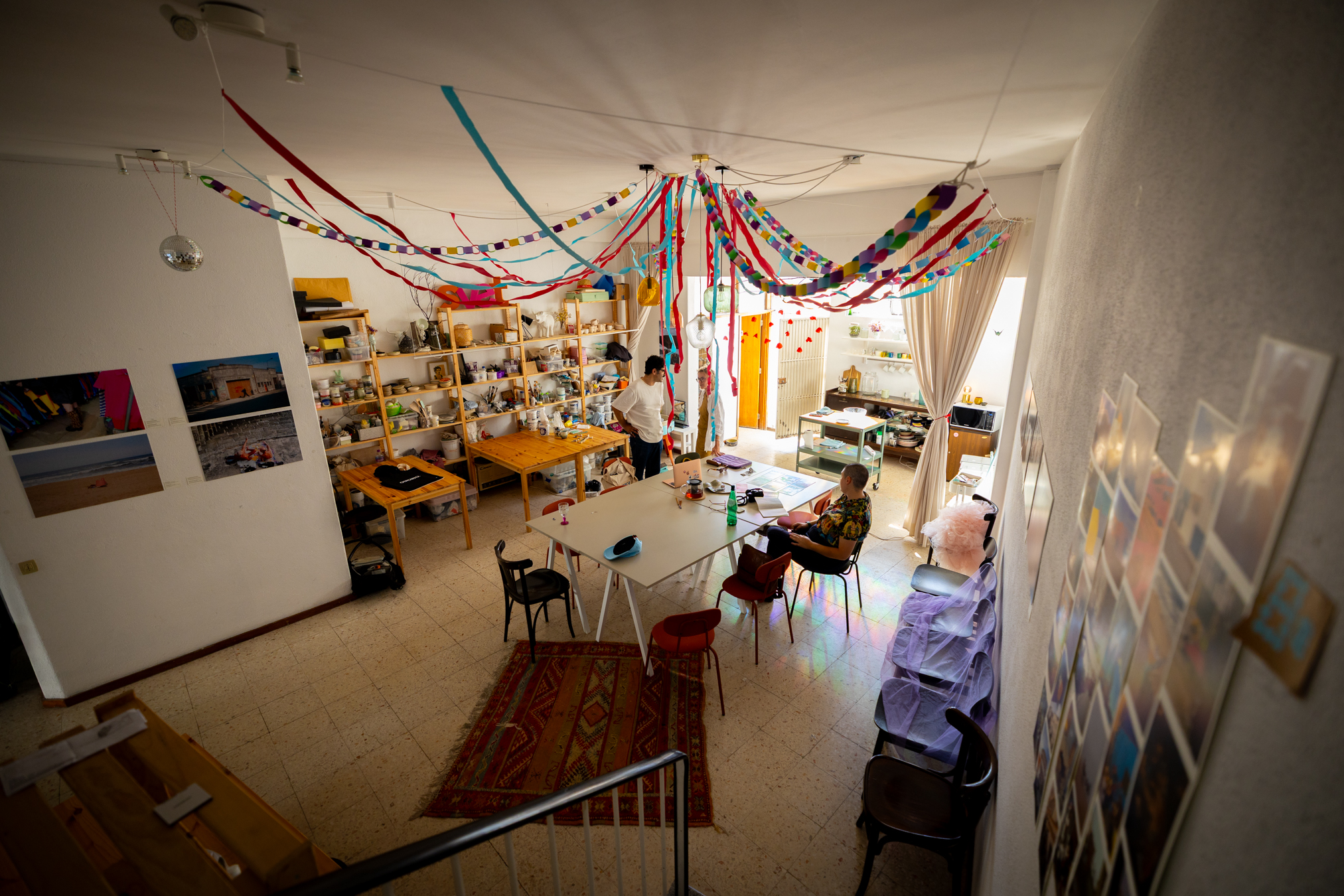
© Sofia Hugens
The oven in question is called Arnold, and is duly identified with several stickers of actor Arnold Schwarzenegger. But in the same room where the oven is located, there is a small bench with stained glass assembly tools, with some colored glass scattered around. On the shelves on the walls, there are pieces of pottery, the practical results of successive workshops for beginners. The walls themselves are adorned with an exhibition by photographer Maria Sher, a close friend of the house. Small plants sprout up in various corners, multiplied during a terrarium workshop. This organic multiplication arouses curiosity in those passing by the square: “I usually call those who pass by ‘crabs’ because, as we have the name of the space in vinyl on the window, they have to peek through the glass slightly crouched down, swaying from side to side (laughs).”
Svetlana enjoys neighborhood life—when we arrived, she was filming a short Halloween video for social media. Not having a ghost costume, she borrowed a sheet from the store next door. And when they hold their regular swap meets, she tells us that “there’s always a lady who asks us three or four times if everything really is free and if she can take anything. You can tell it’s not a common practice here.” Svetlana has worked in marketing, made documentaries, and even worked in satellite engineering. Right now, she feels good in her role as hostess of a bright space where everyone is welcome: “Even if you work in technology and are always on the computer, you can do it here and feel surrounded by people.”
Porto Arts Club
Next to Jardim do Passeio Alegre, in one of the many narrow streets that lead into the residential area of Foz Velha, there is a building that stands out among the whitewashed stone with its ochre-red painted façade. It was here that Marc Jancou founded the Porto Arts Club — a multidisciplinary space with a strong focus on visual arts, the result of a long renovation of the building that began in 2018 and only opened to the public in September this year. It is a members' club, but it has two exhibition spaces open to the general public — the most recent exhibition, featuring works by Japanese artist Yui Yaegashi, can be seen until December, and follows the inaugural exhibition by Mari Eastman.
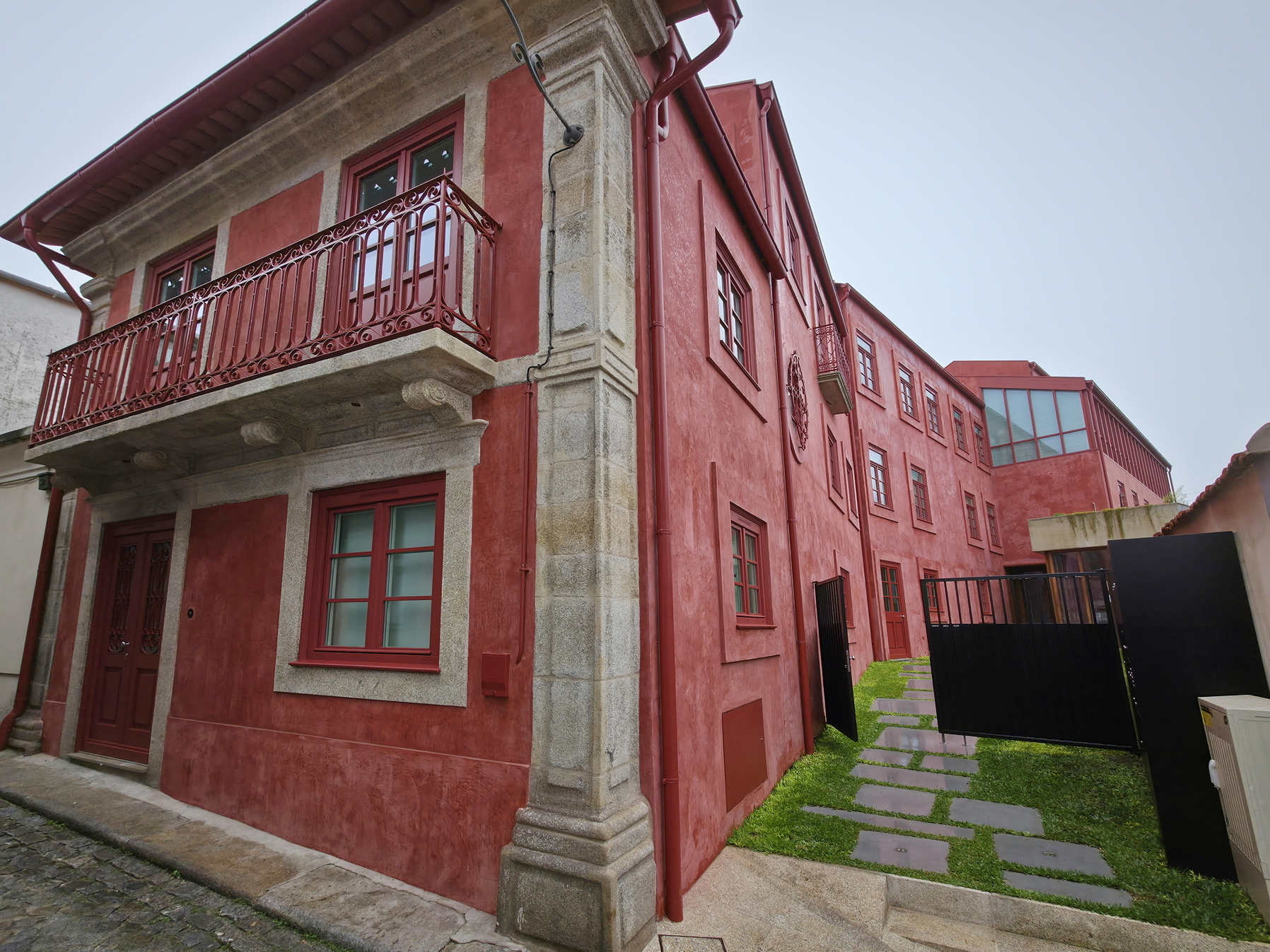
© Rui Meireles
Marc Jancou, a Swiss art collector and dealer, explains that the club, which is guided by the “desire to live more poetically,” aims to be a space where “you slow down, share, and learn.” “For me, the idea of living poetically is about aesthetics being present in everything: in our surroundings, in the light we use, in our proximity to the elements and nature.”
This intimate relationship with aesthetics is evident in every inch of the space—from the choice of building materials to the small design pieces that fill the rooms, there is a curatorial presence in every gesture. With an extensive international cultural network, Marc could have chosen several cities for this project, but he gives us two reasons for choosing Porto: “One of the reasons is personal; I feel good in Porto, I like the city. For me, it's important to be exposed to the elements, and here, by the river, we have that. The other reason is pragmatic: Porto is a medium-sized city, where a project like this can have an impact — but at the same time, it's a city with a very active cultural life that attracts artists from all over the world."
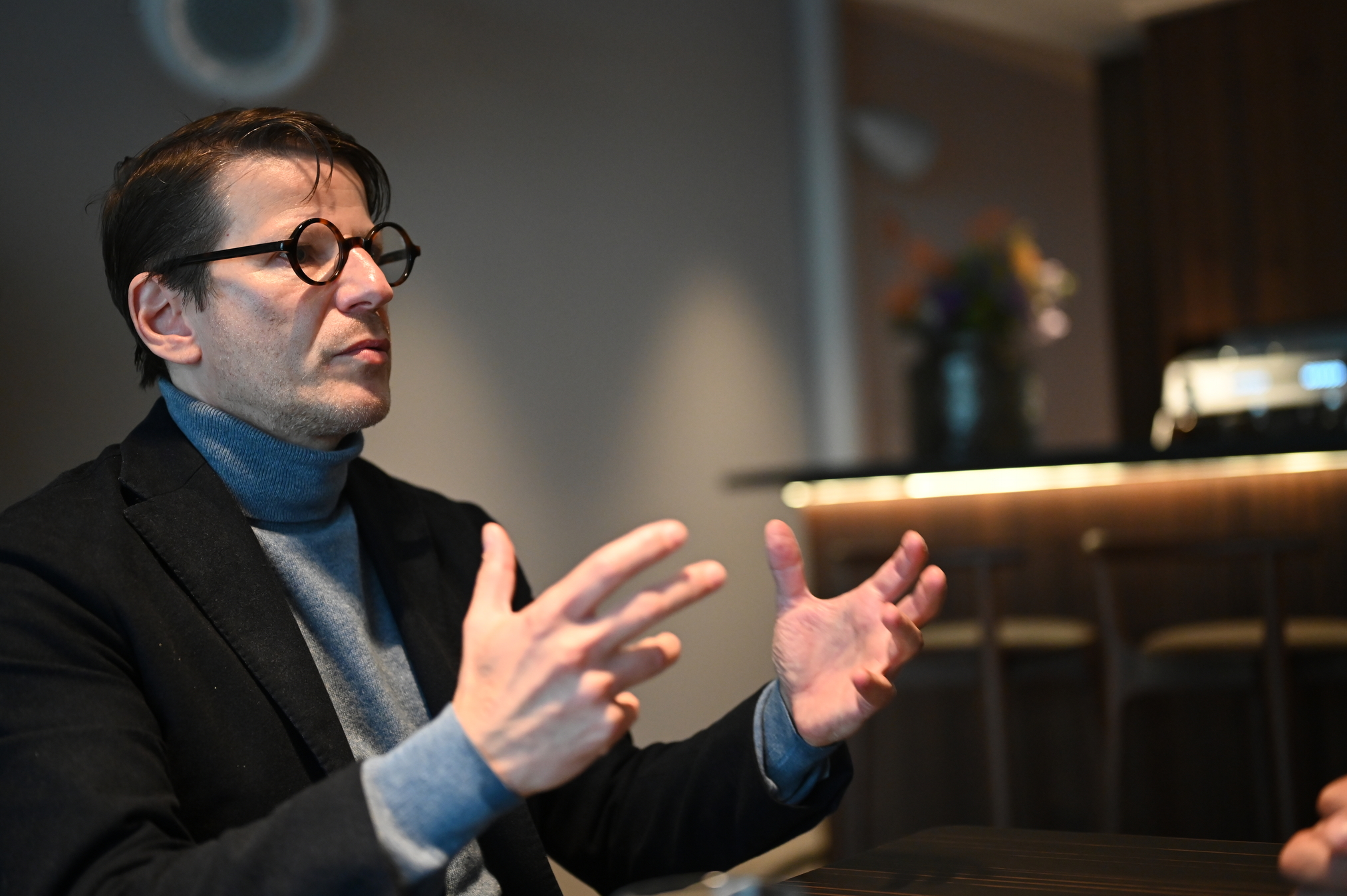
© Rui Meireles
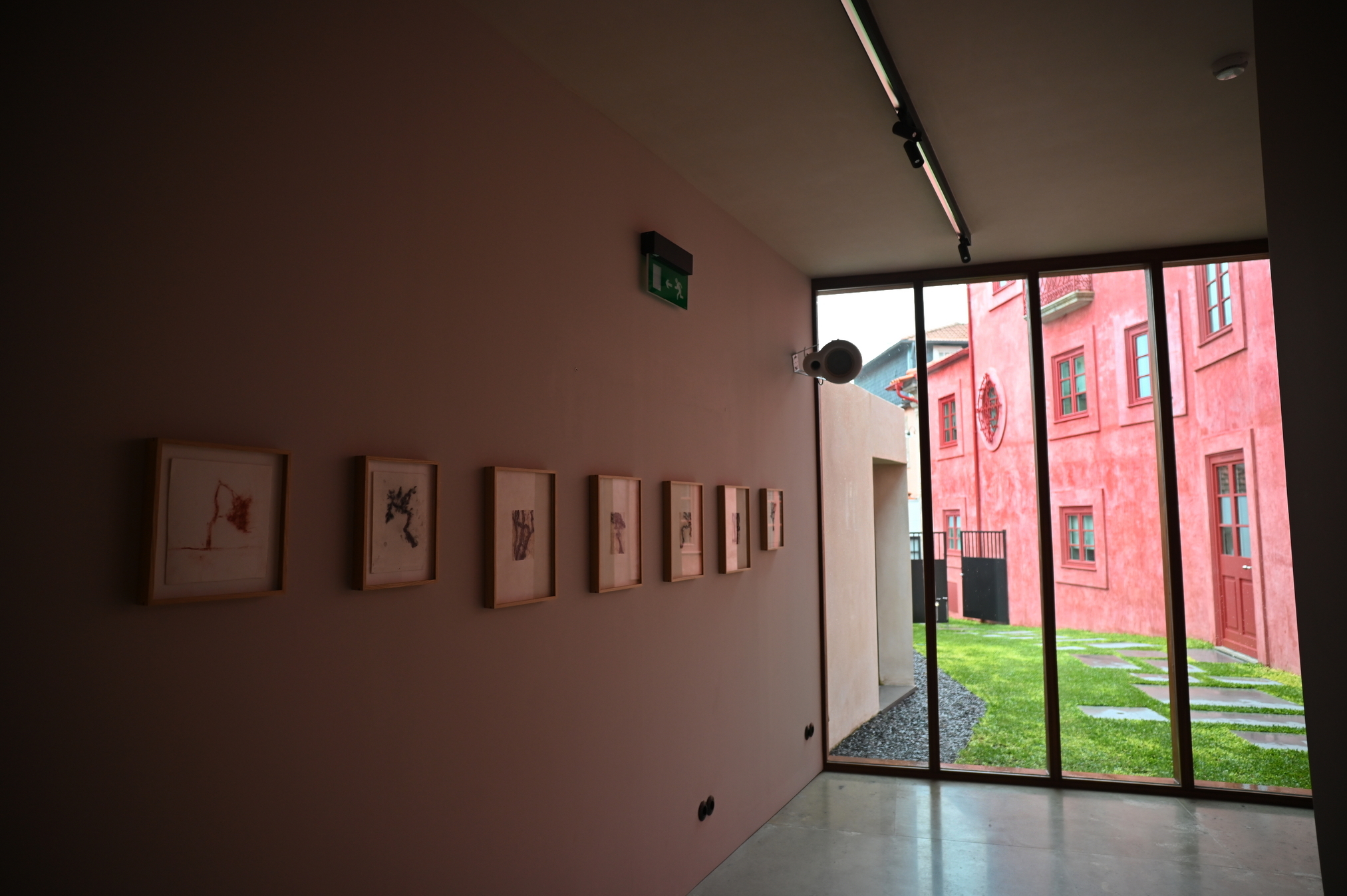
© Rui Meireles
Club members have access to a range of amenities, such as a bar serving fine cuisine, apartments for residence, and events such as talks and workshops with guest artists, or private art showcases. This activity revolves around several small “committees” that develop activities related to cinema, fashion, dance, or architecture. But, in addition to free exhibitions, the desire to open up to the community is a priority for Marc: “Next year, we want to launch an open call for local artists. And we will continue to think of ways to relate to those around us, regardless of whether they are members or not.”
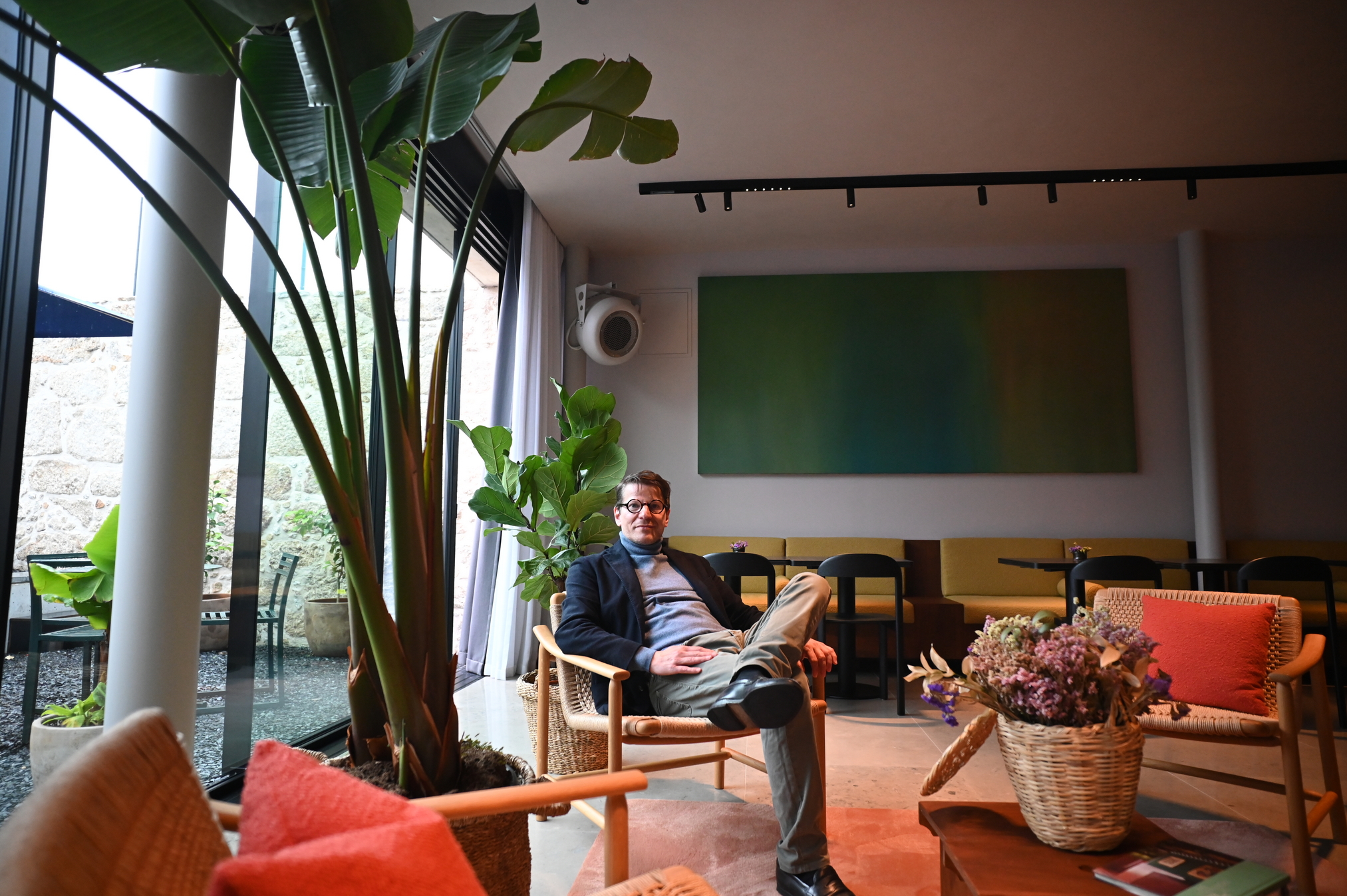
© Rui Meireles
Bar of Soap
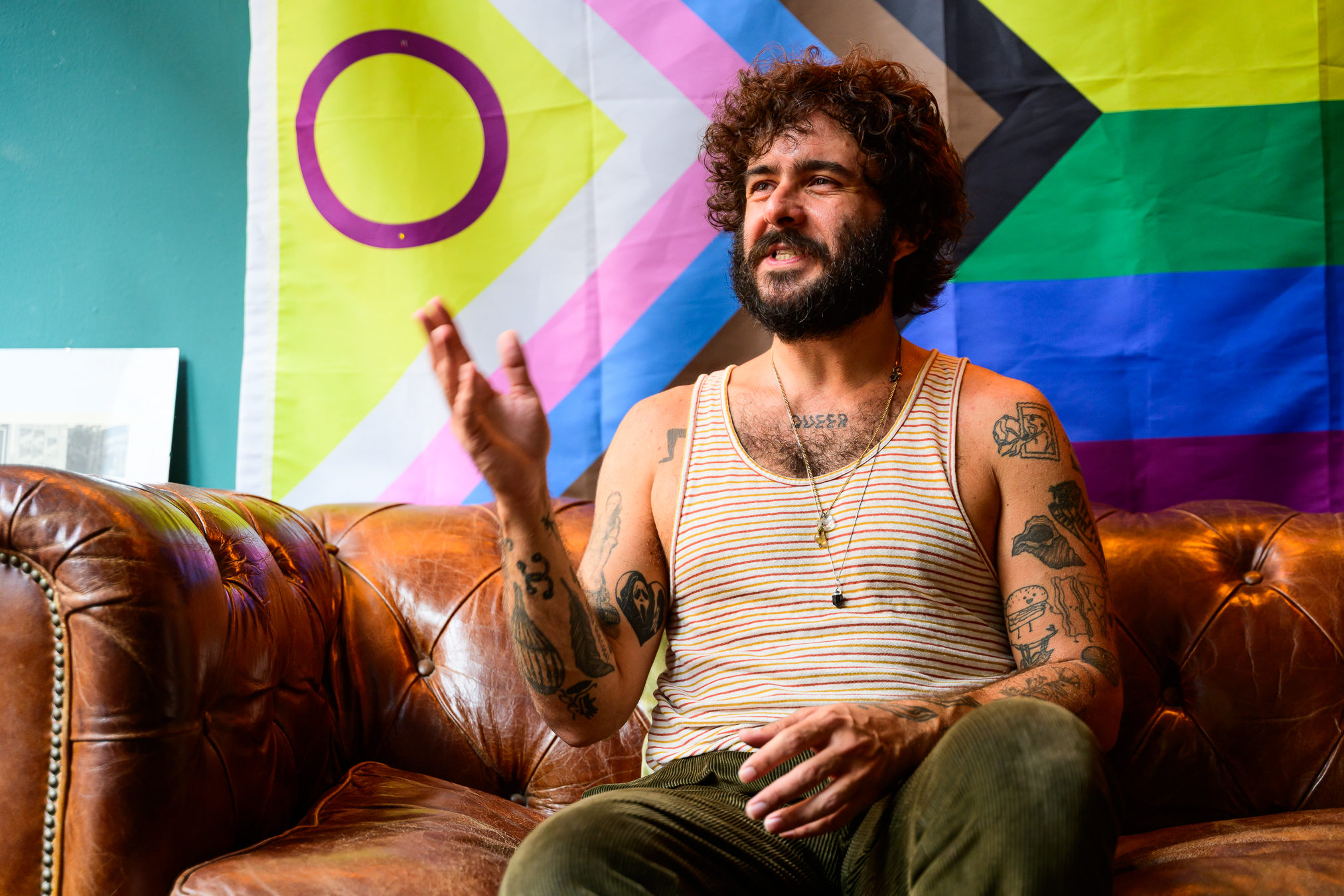
© Nuno Miguel Coelho
Pedro Soares is originally from Niterói, Brazil, where he worked as a graphic designer. He always felt the urge to leave Brazil and explore other places, but the moment never seemed right. Until the day the universe made that decision for him: “When Bolsonaro was elected, I packed my bags in two months.” His first stop was Lisbon, where he didn't feel entirely at home. But on a visit to Porto, he immediately decided that this was where he wanted to live: “I think it was Porto that chose me. Seven years have passed, but I still find everything beautiful. It's a city full of identity and charm. And I think the way the people of Porto live their lives reminds me of Rio de Janeiro.”
He soon began working at Bar of Soap, which was owned by an American couple at the time: “They were expats, and the bar's clientele consisted mainly of foreigners living in Porto.” When the opportunity arose for Pedro to take over the management, he changed the concept of the space, turning it into an openly queer bar. “I always wanted to make this a space for everyone,” he tells us, “and now we have many more Portuguese people visiting us too, which makes me very happy.”
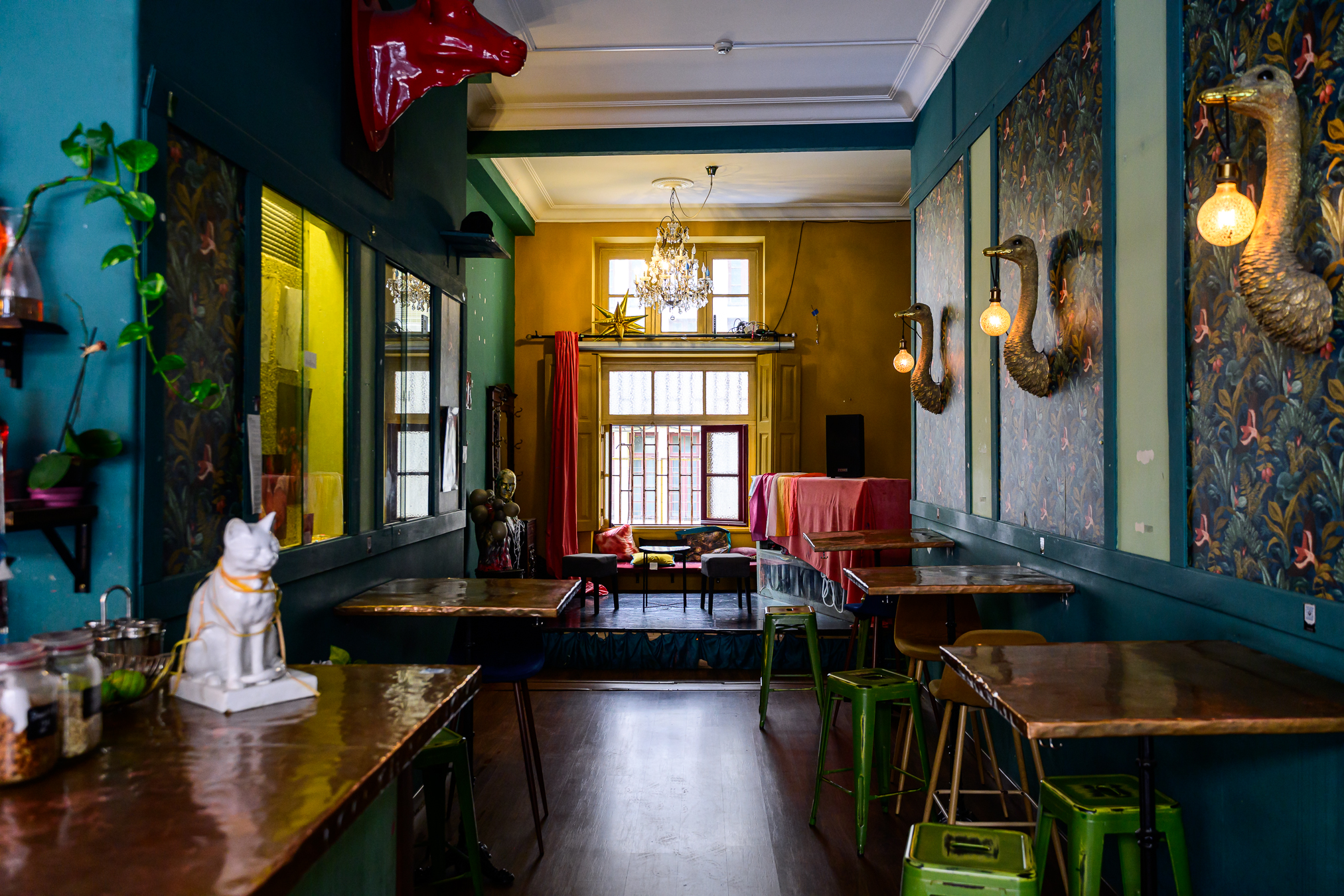
© Nuno Miguel Coelho
Bar of Soap stands out for its regular drag performances, one of the few venues in Porto to do so. But Pedro is not yet satisfied: “I haven't quite achieved what I wanted, which is to make this a complete cultural space—one that not only has drag performances, but also artistic performances and cultural interventions.” Pedro recalls with some amusement the shows he most enjoyed hosting, invariably more daring drag performances that explore the more grotesque and less glamorous side, with scatological adventurism more suited to discovery in person than to textual description.
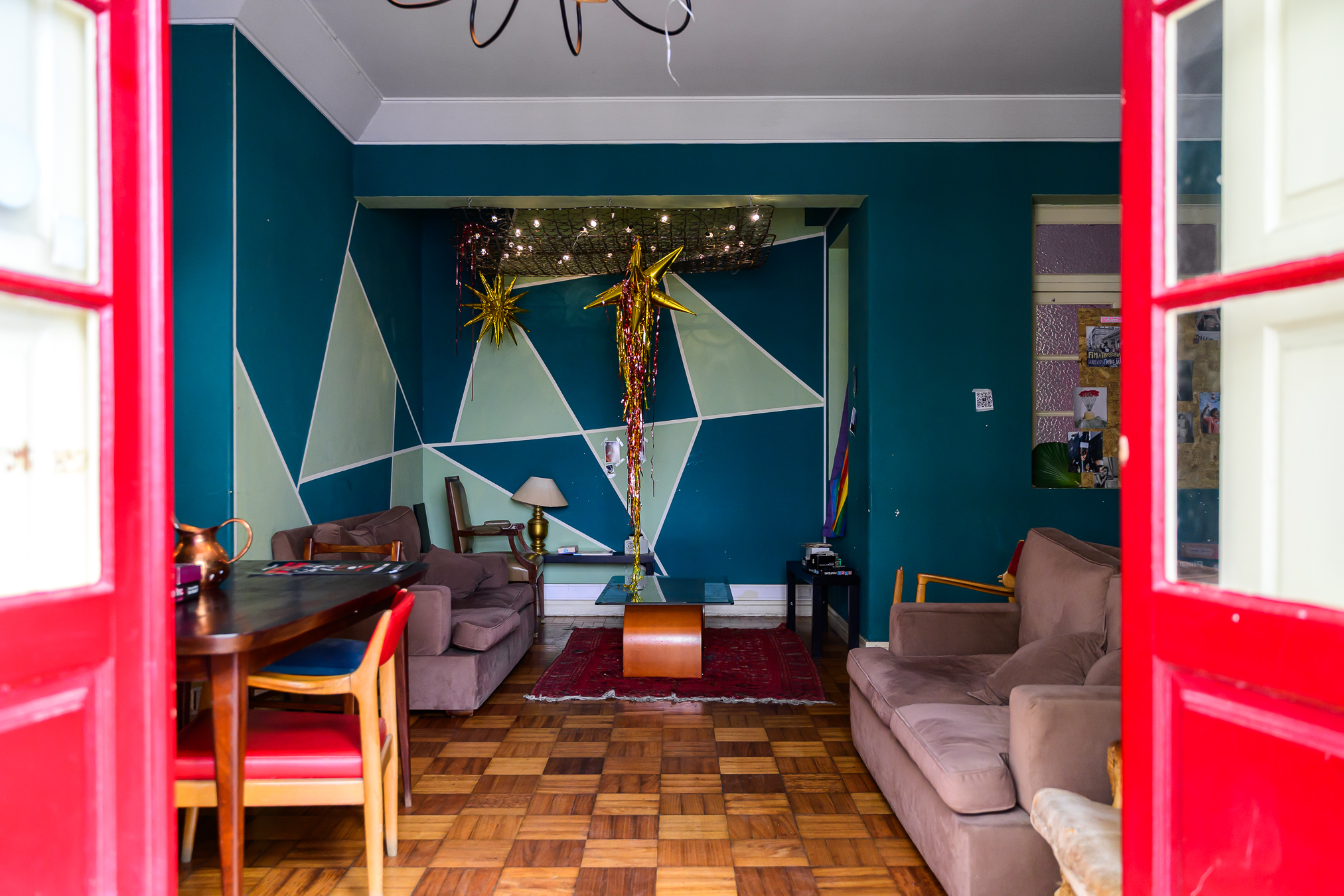
© Nuno Miguel Coelho
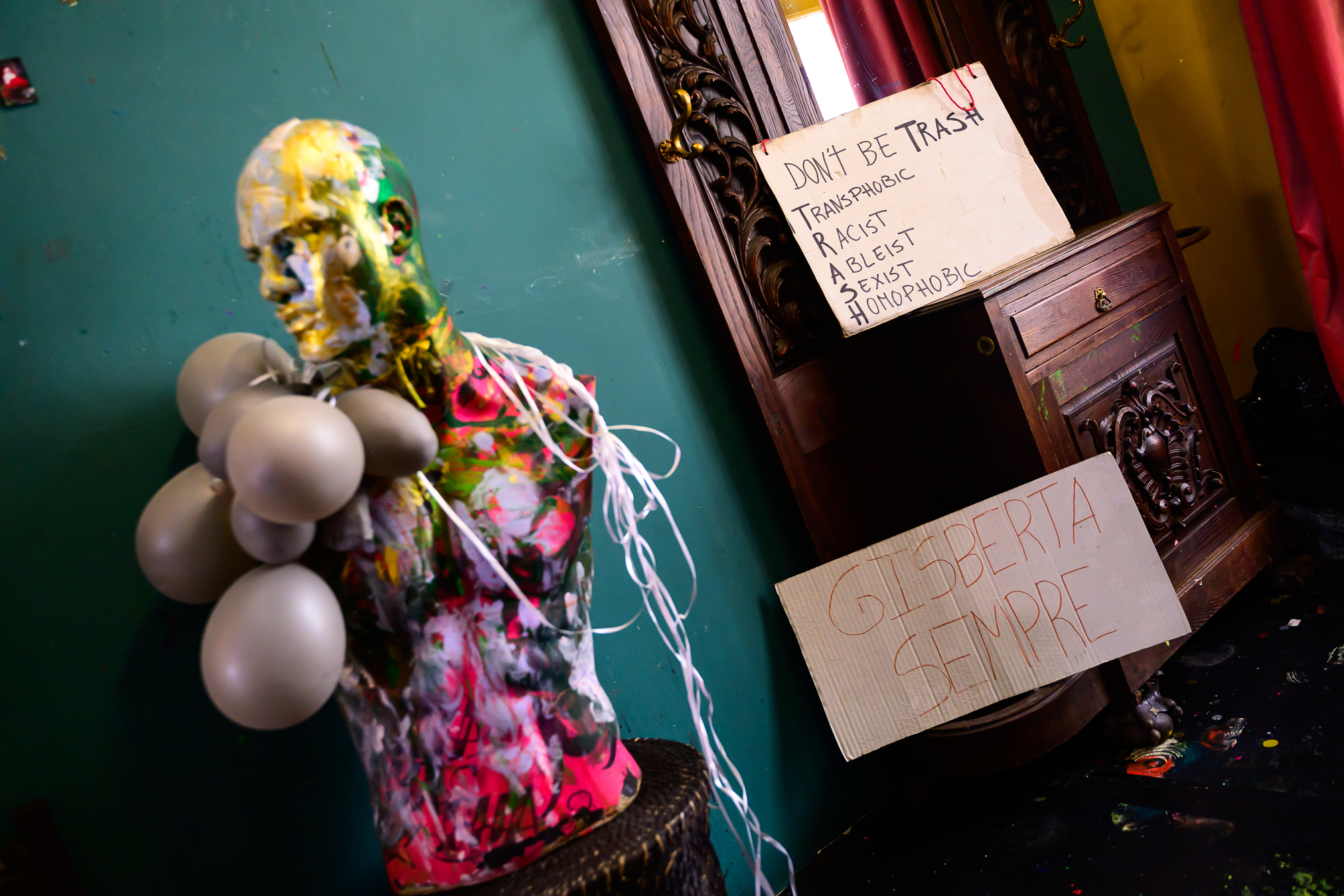
© Nuno Miguel Coelho
The area where Bar of Soap is located has its disadvantages—it is next to a bus stop on Rua do Bolhão, which is not ideal for setting up an outdoor terrace. But Pedro speaks with a sparkle in his eyes about the neighborhood: “The restaurant O Buraco is delightful. And I love the bakery we have right across the street.” Even without an outdoor seating area, there are two floors to explore inside, with a stage that hosts DJ sets every Friday and drag performances every Saturday.
Zamaan
Saya Mohamed could be described as a Galician pharmacist, and technically that would not be wrong. But her pharmacy degree has long been forgotten, and Galicia, although her birthplace, is surpassed by the country that has always been present at home, and where her parents were born: Palestine. Today, the DJ-activist is a resident of Porto, a city she fell in love with in 2015: “At the time, I was doing Erasmus in Faro, but on my trips between Faro and Santiago de Compostela, I always stopped in Porto—I felt that I wanted to live here.” She often came to the city, “even if it was alone,” to see shows at the Coliseu, Passos Manuel, and Maus Hábitos.
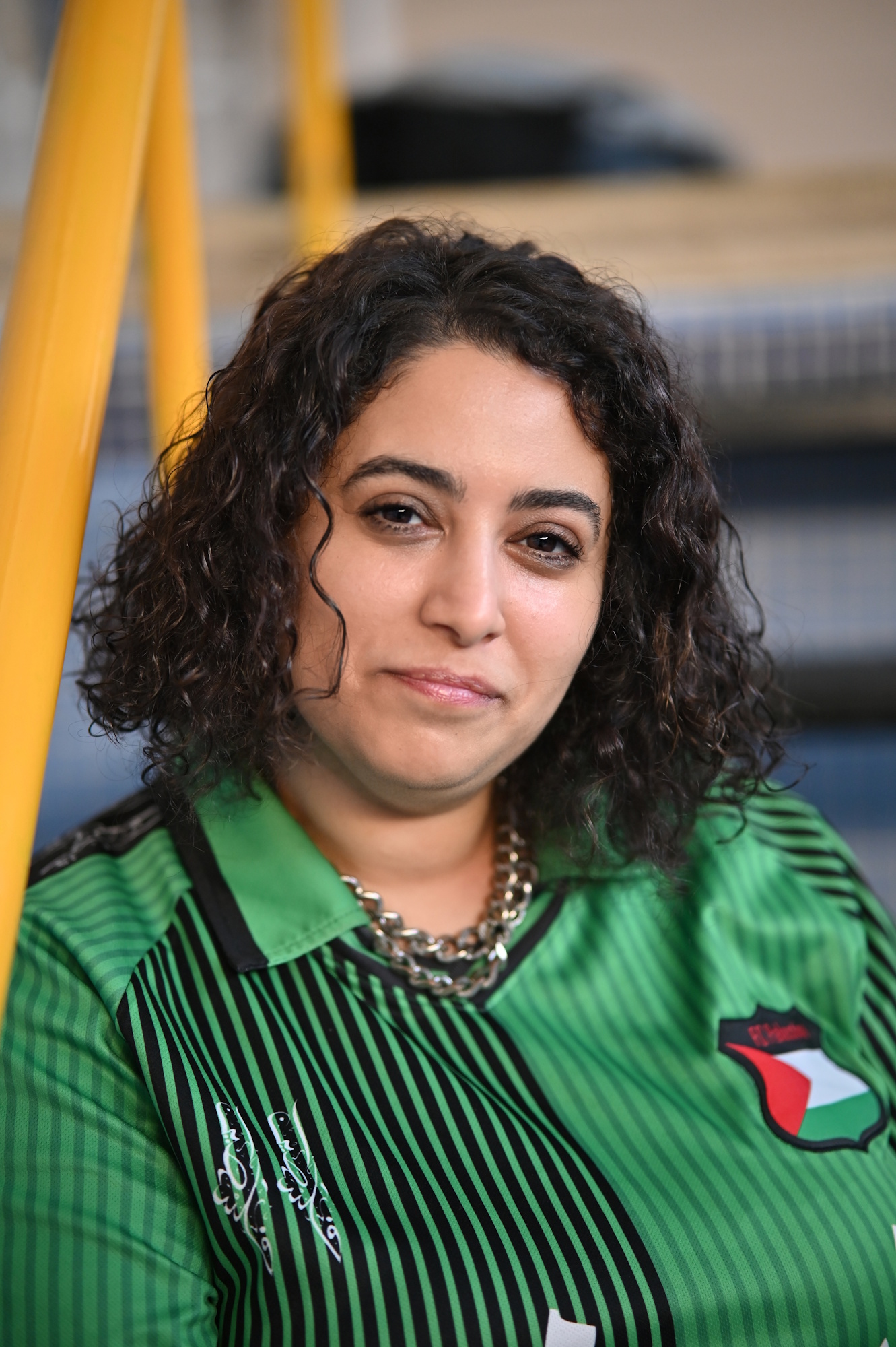
© Rui Meireles
Until, in 2023, she found the perfect excuse and moved to Porto to do an internship at Lovers & Lollypops. Today, Saya is a household name on the nightclub scene, but her career extends beyond the dance floor: she was recently invited by António Ónio (Fylhas do Dragão) to join the team of programmers at Associação Cultural A PiSCiNA. Although this phase of her artistic journey is still under construction, Saya's line at the controls of a mixing desk has been crystallizing as a bridge: “I think I'm balancing two worlds, which is being more narrative, more serious, versus making people dance, making sure people have fun. And I think I can bring the two worlds together well.”
Not far from this butterfly path is the platform launched this year, Zamaan. This Arabic word means “time” or “era.” Saya's own emotional connection to this word dates back to her childhood: “I always remember my mother using zamaan to refer to stories from other times, even other generations. Something that is distant, but still means something.” With a focus on the Arab world, this cultural platform aims to bring together “non-normative, dissident people who are in the diaspora” and who are “reinterpreting the ancestral sounds of their countries of origin, reinventing the past with the tools of the present.” As an example, the platform debuted last month in Porto with Only Now, an Indo-Californian music producer who “combines Punjabi elements with noise and percussion.”
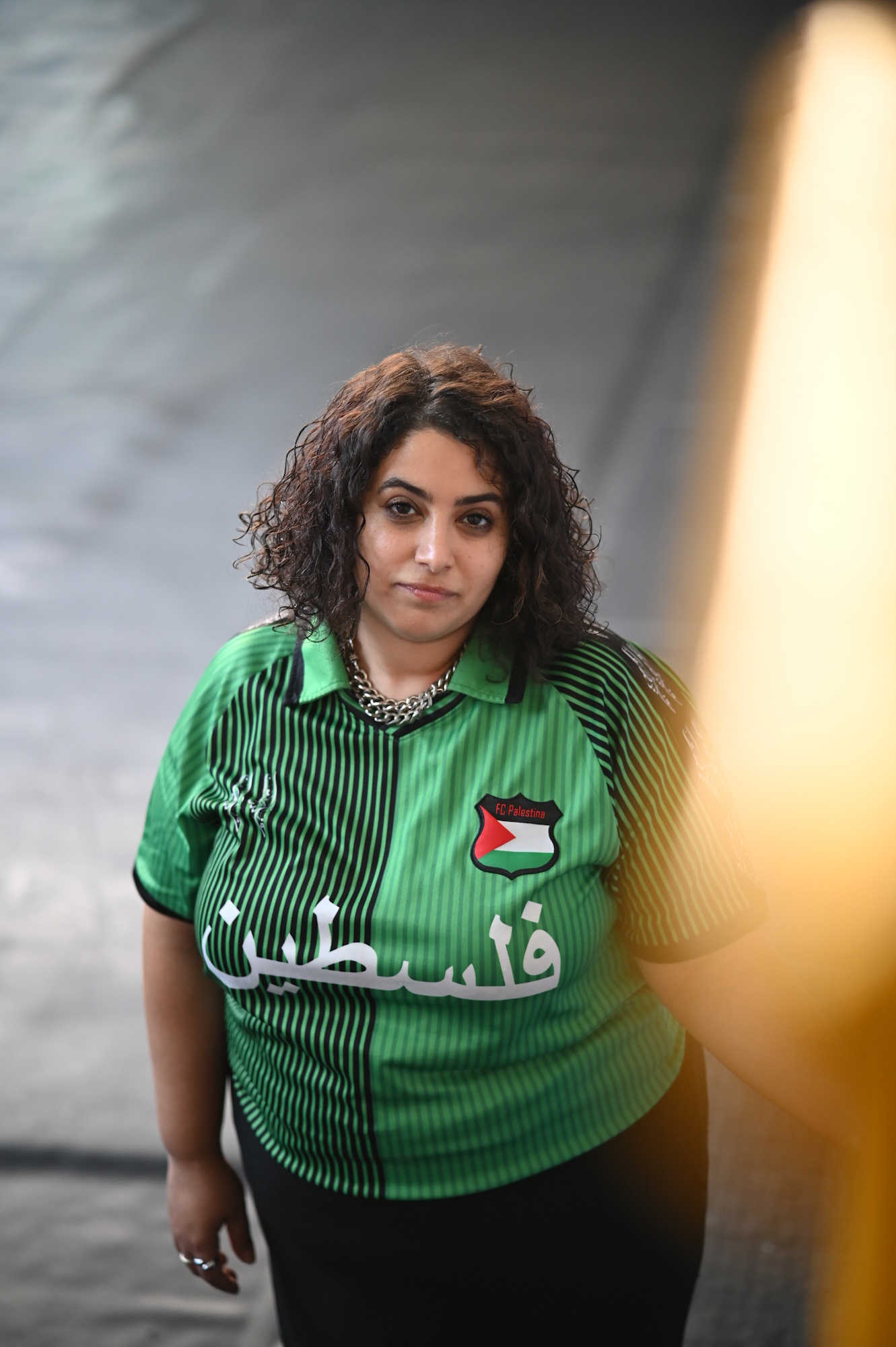
© Rui Meireles
Saya's family is scattered around the world, but also in Tulkarem, in the West Bank. Although she feels at home in Porto and considers this city her home, she admits that “I would like to be able to visit my family and explore Palestine at my leisure.” Something that Saya does not believe is possible with the recent ceasefire agreement: “Israel is a terrorist state, you can't believe the promises they make.” Despite everything, she emphasizes that “Despite everything you see in the media, a rich cultural life is still possible. Ramallah has a very strong underground scene, and one of the biggest names in techno, Samaʼ Abdulhadi, came from Palestine.”
Share
FB
X
WA
LINK
Relacionados


